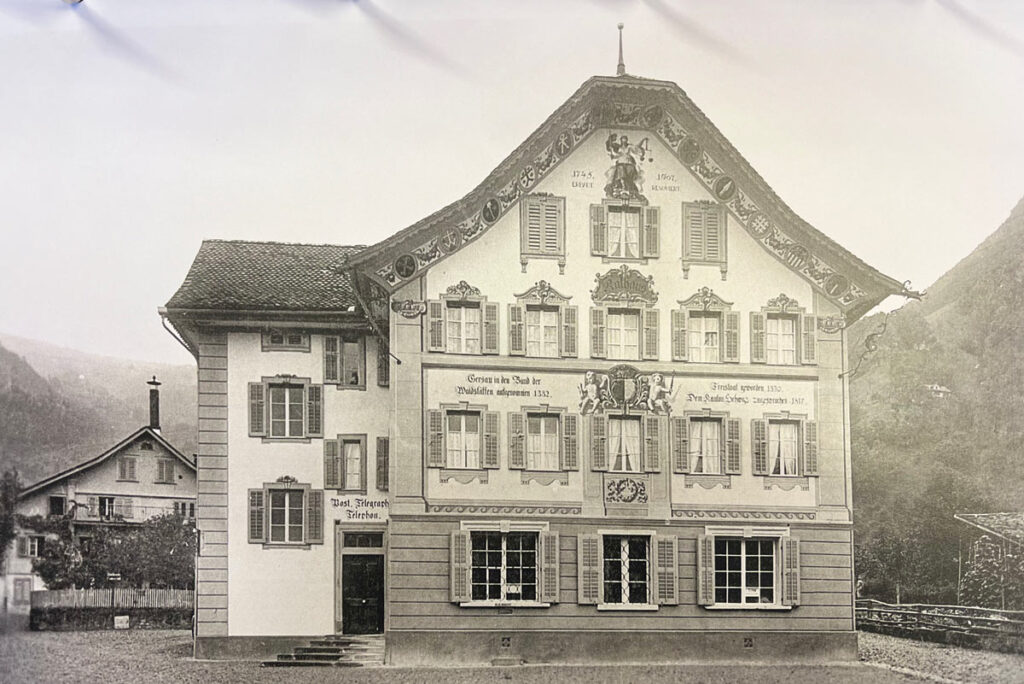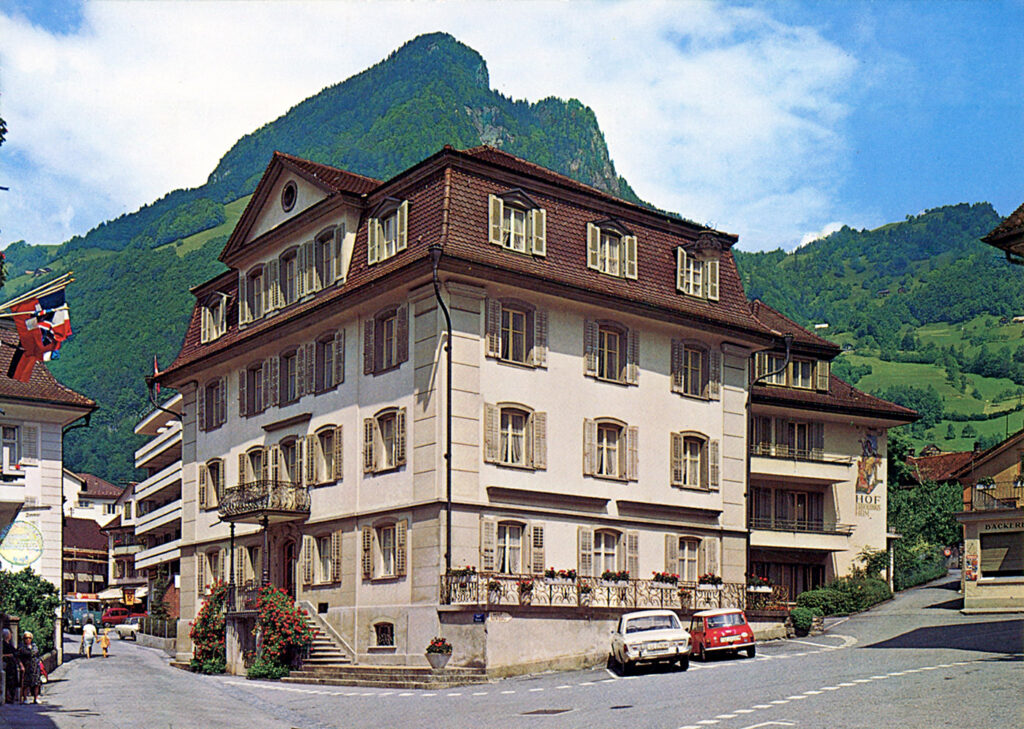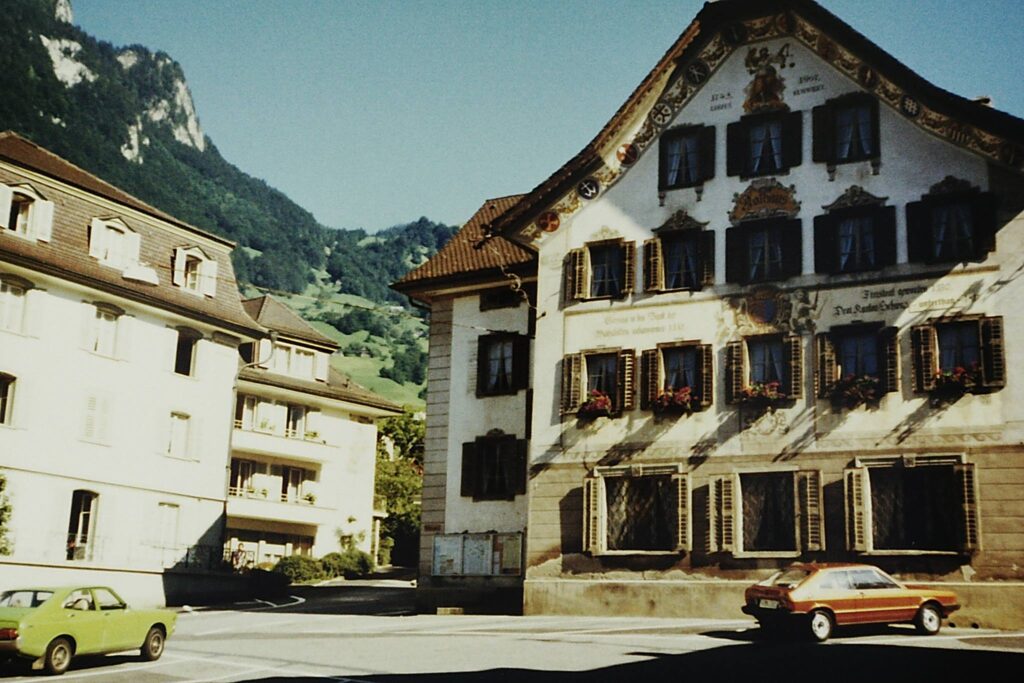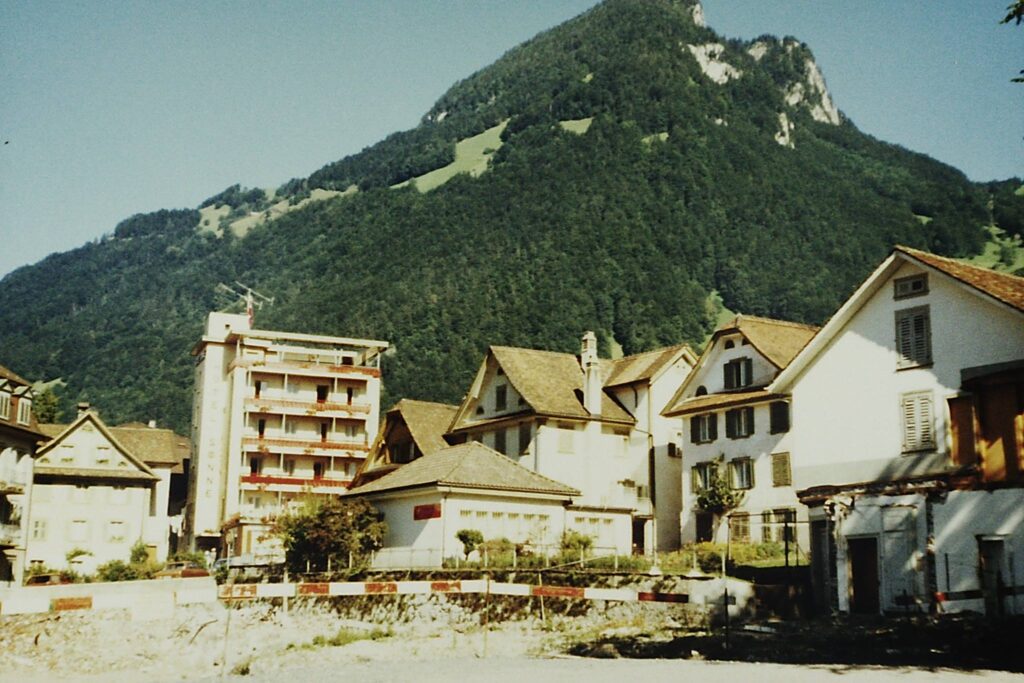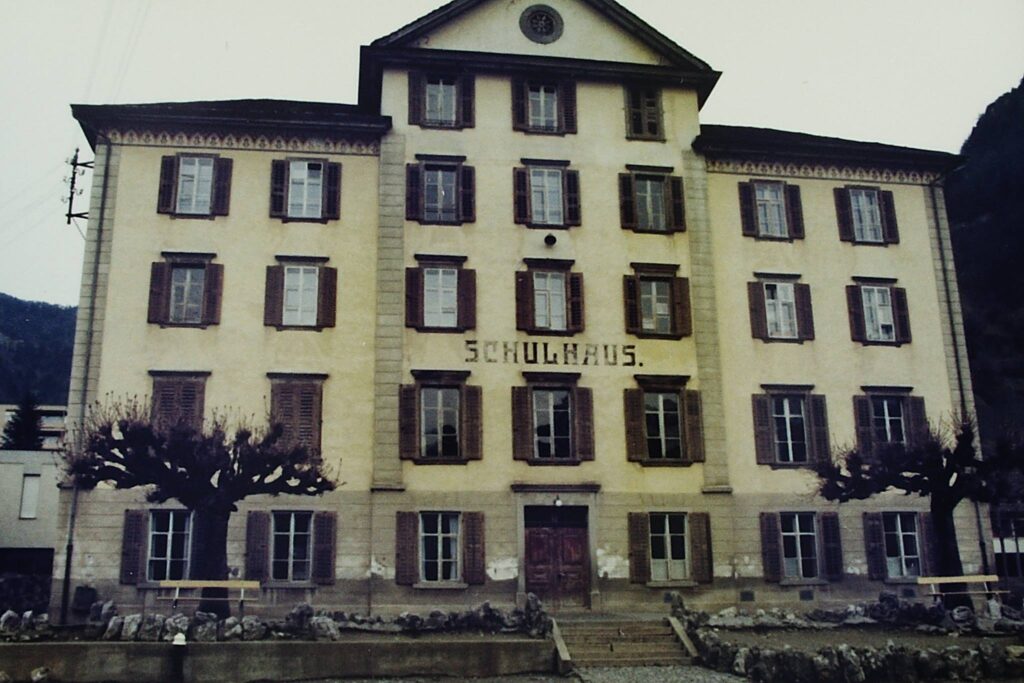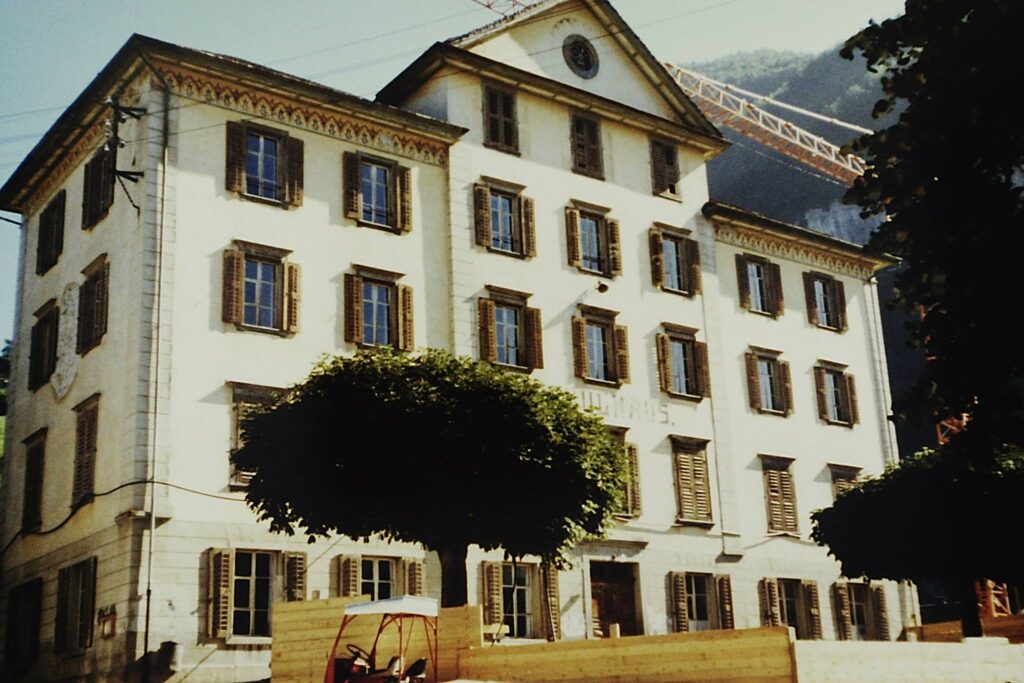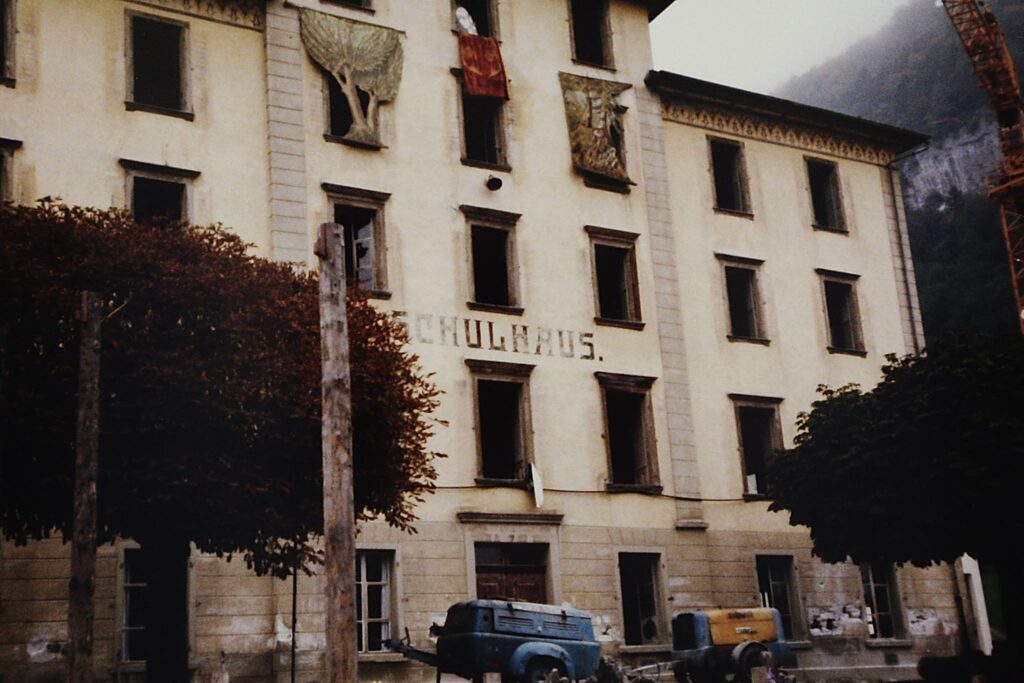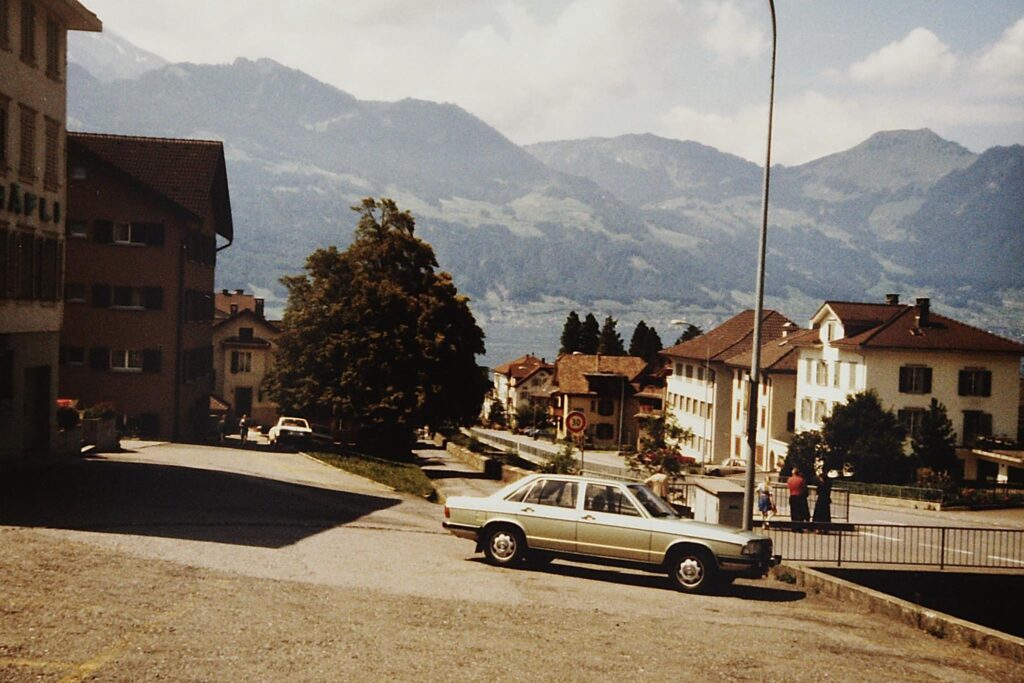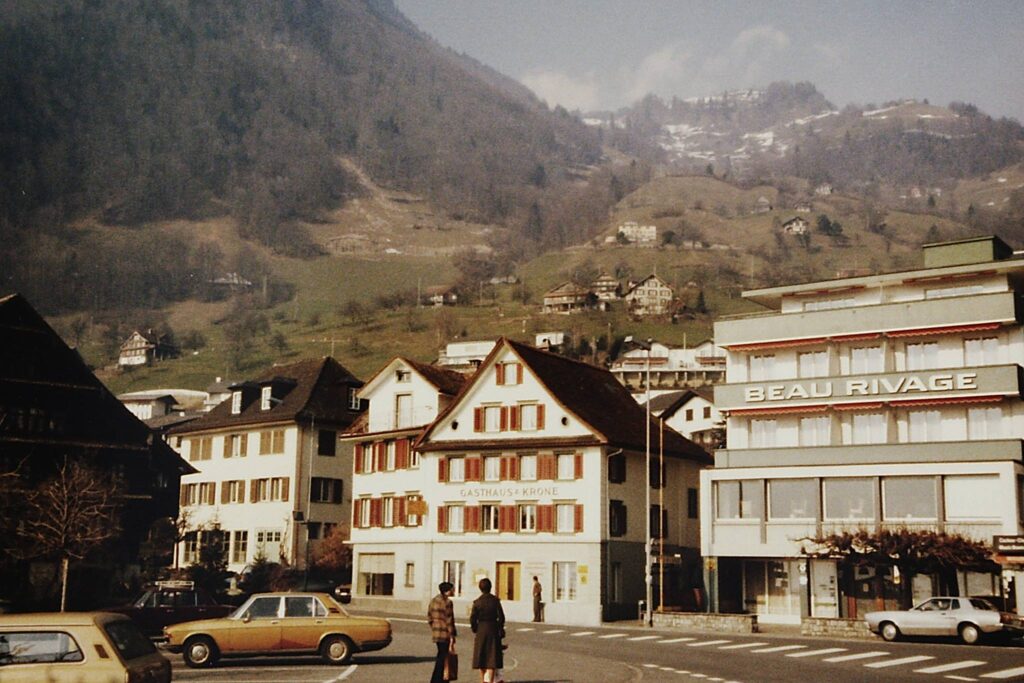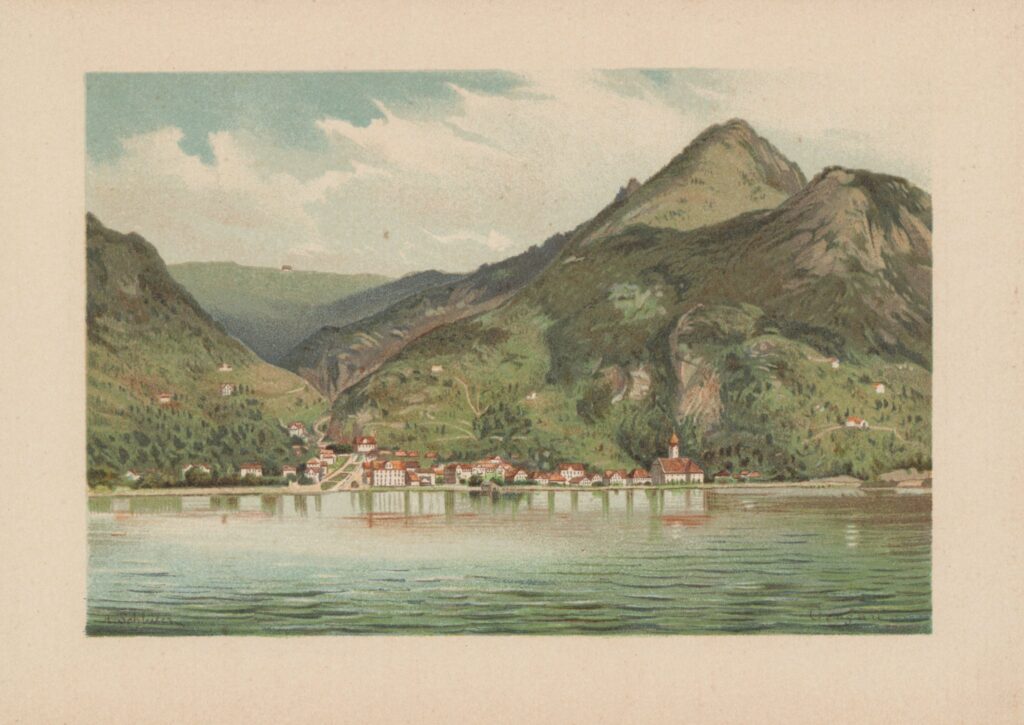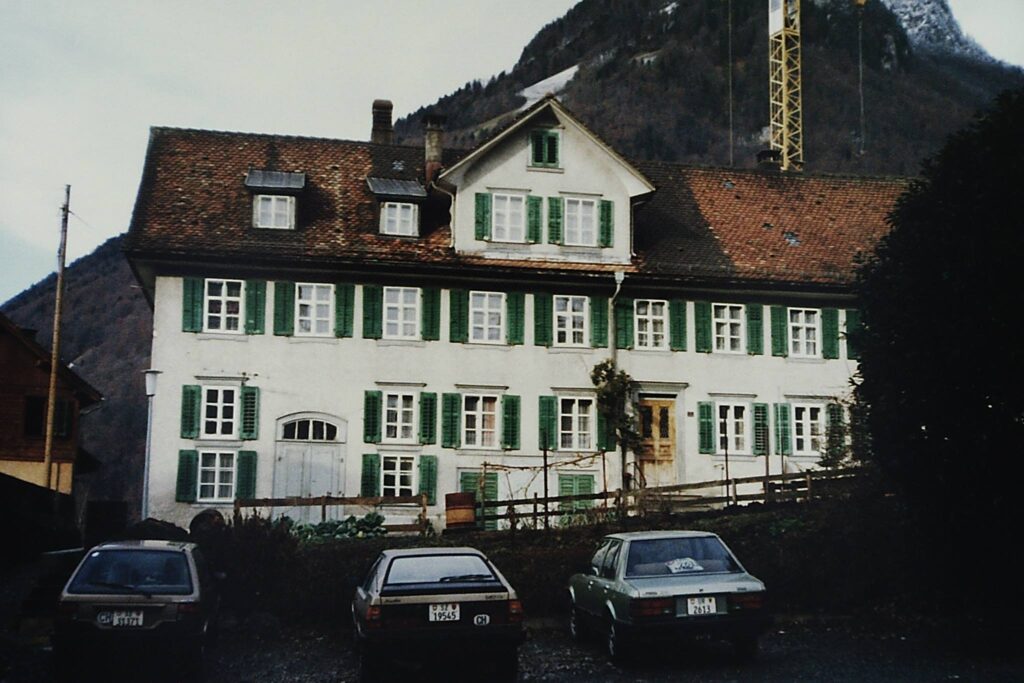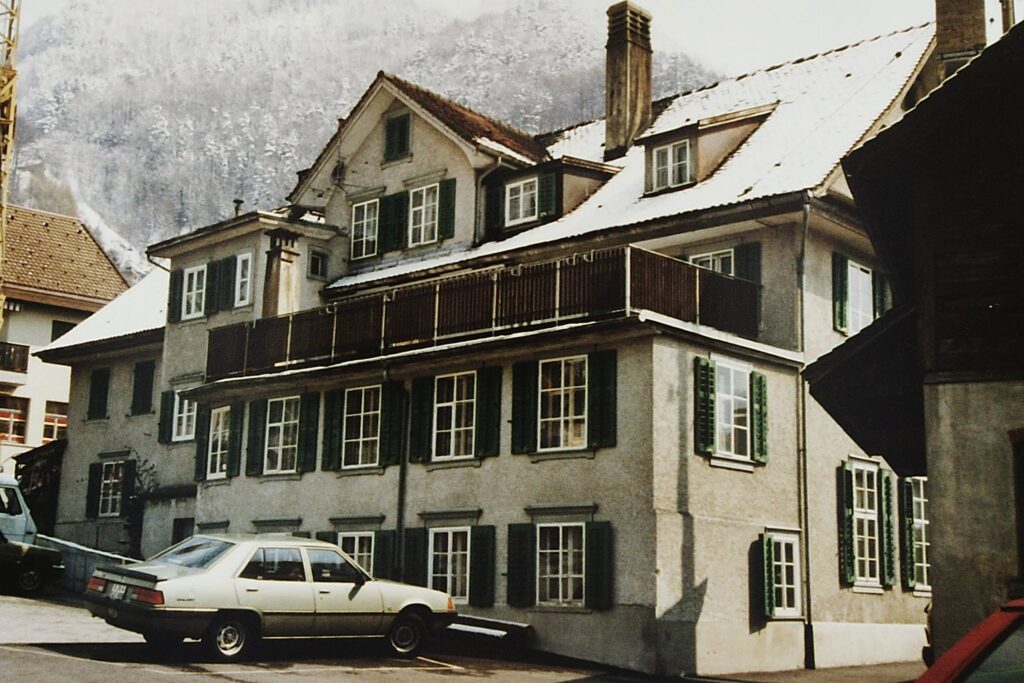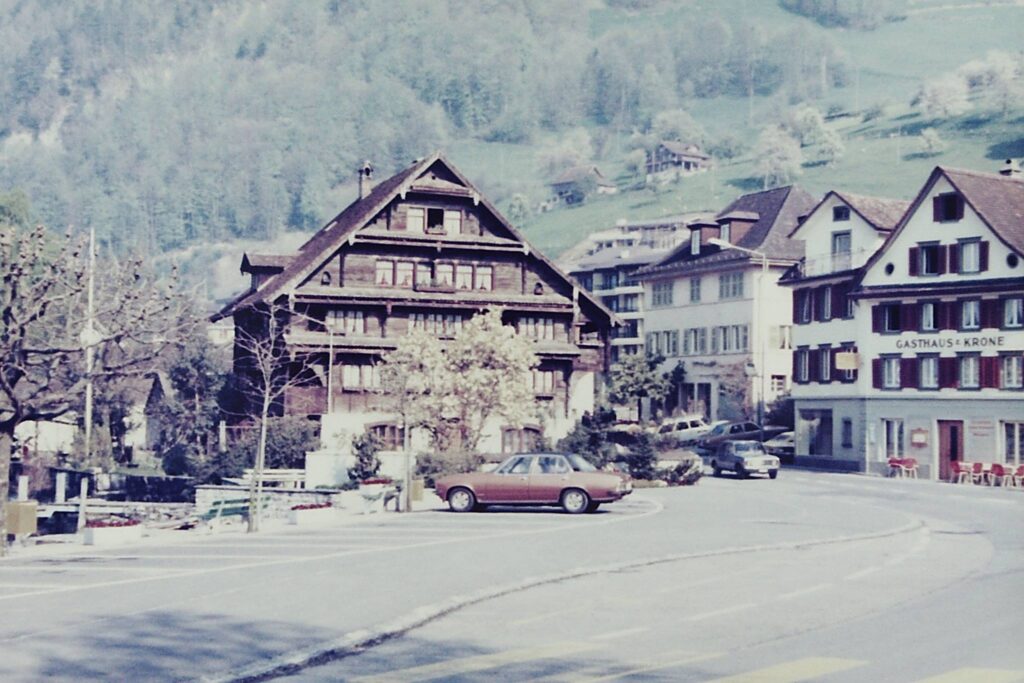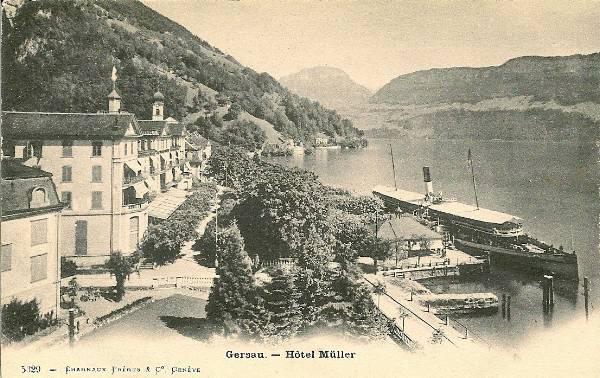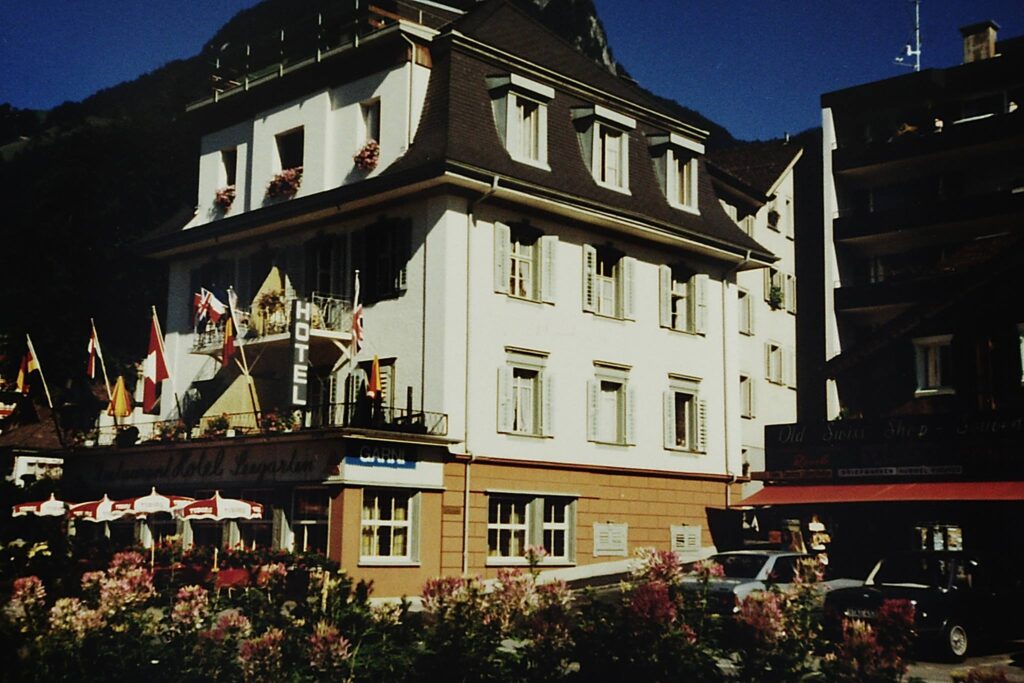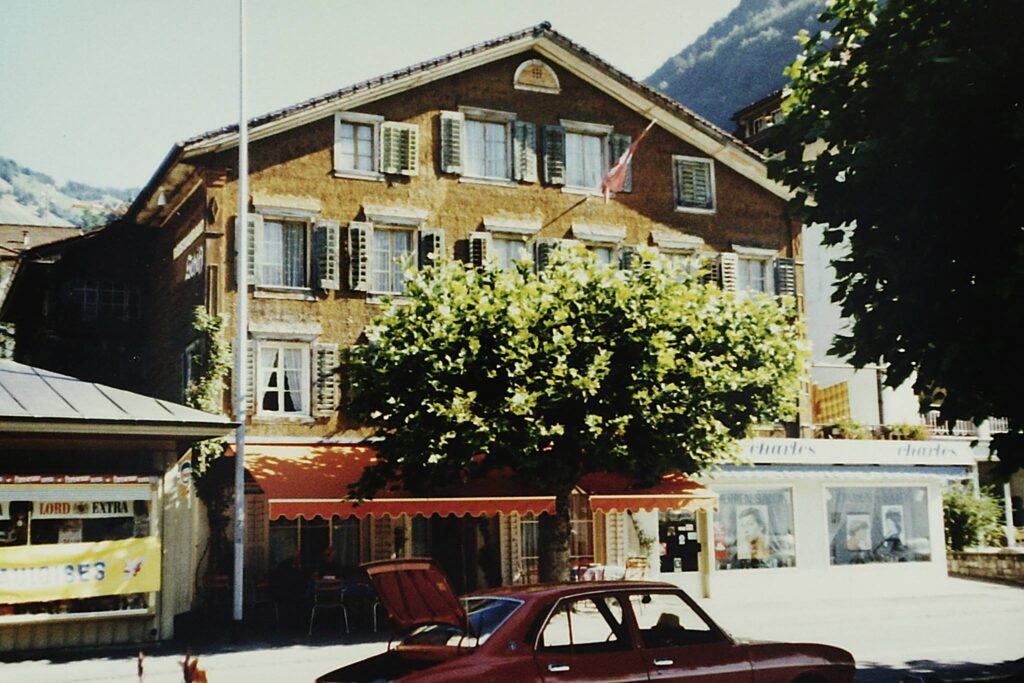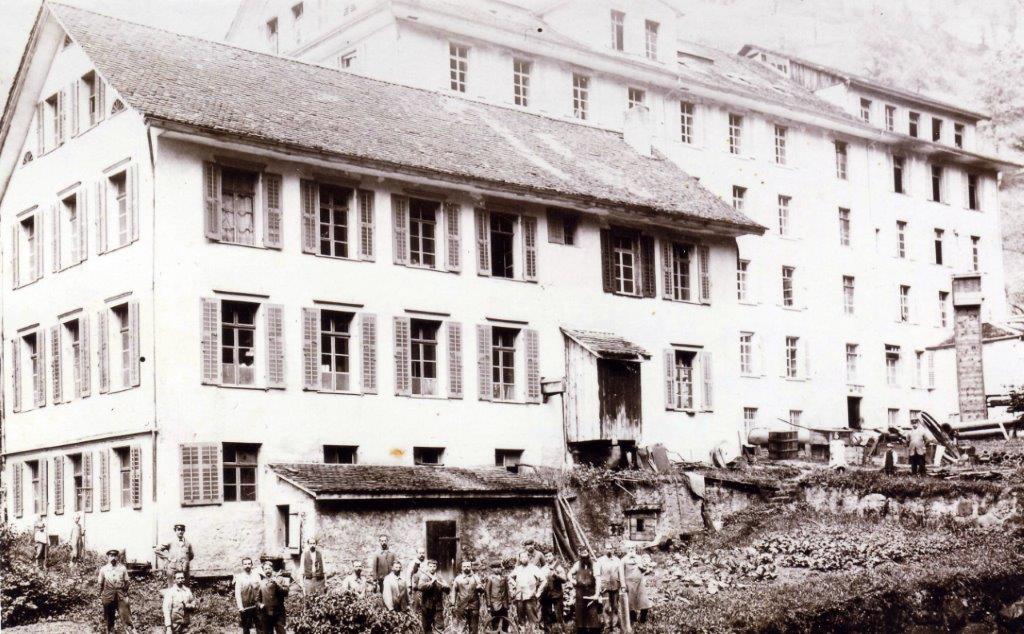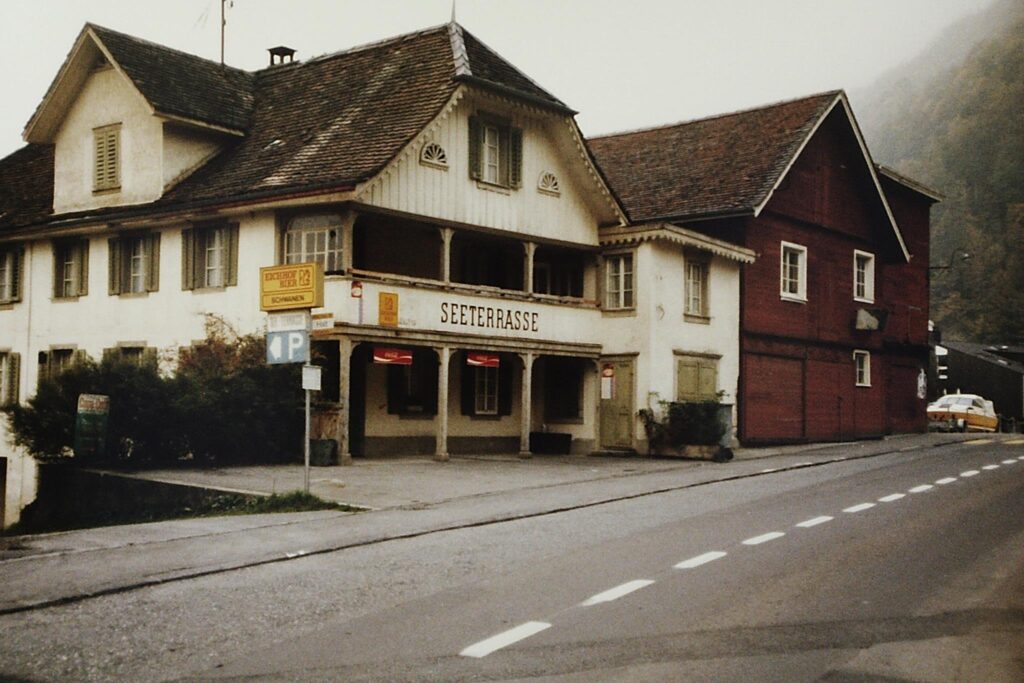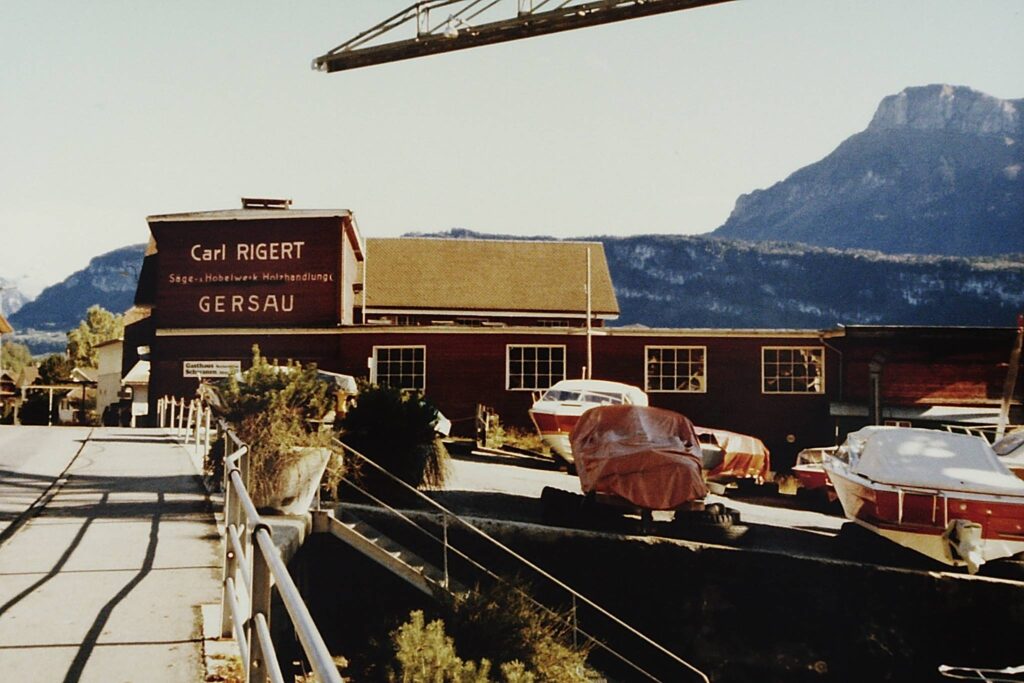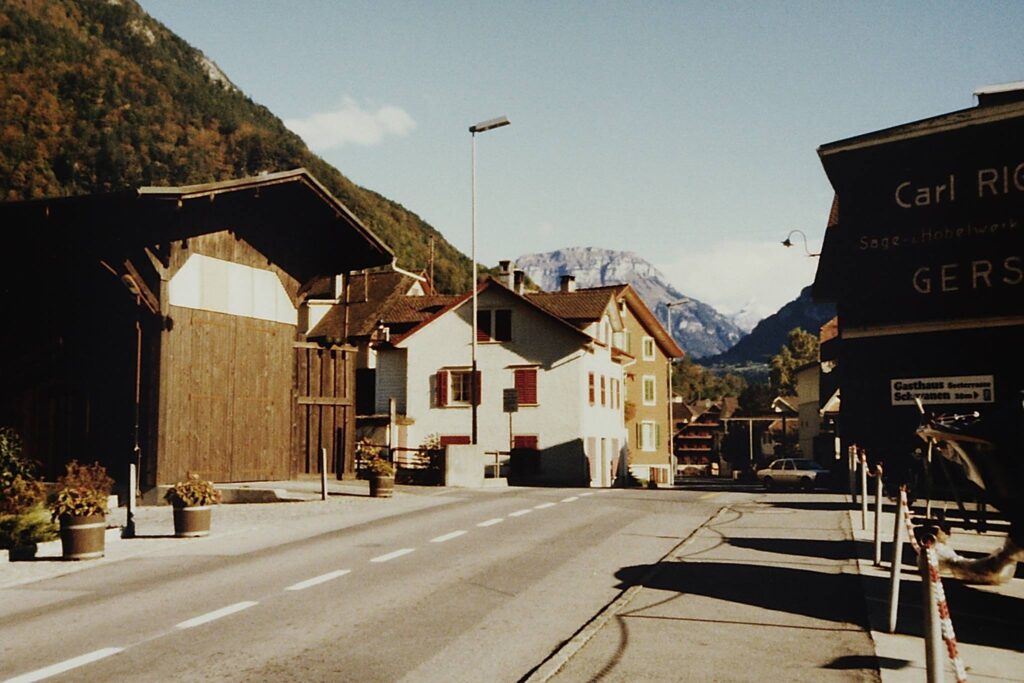Local museum & history
Opened in 1984 and located in one of the most historic buildings in Gersau. The local museum is located in the "Old Town Hall" of the «altfryen Republik»" of 1745, once the smallest republic in the world.
- Gersau was once the smallest republic in the world! For example, it had its own army and its own jurisdiction. You can find interesting facts about this unique chapter in Swiss history in our museum.
- The Swedish national author August Strindberg spent some time in Gersau, about which you can learn a few details.
- There is a brand new exhibition about the tourism from the past.
- A photo exhibition of the Stradivari instruments of the Habisreutinger Foundation presents
- A permanent exhibition about the local writer Josef Maria Camenzind and about the musician and composer Benno Ammann.
- One room shows how silk came to Gersau.
Opening hours
1 May - 31 October
Saturday
each from 3 - 6 pm
Free admission - door collection

Contact us
Gersau local museum
Dorfstrasse 14
6442 Gersau
+41 41 828 12 20
info@gersautourismus.ch
Here Guided tours can be booked.
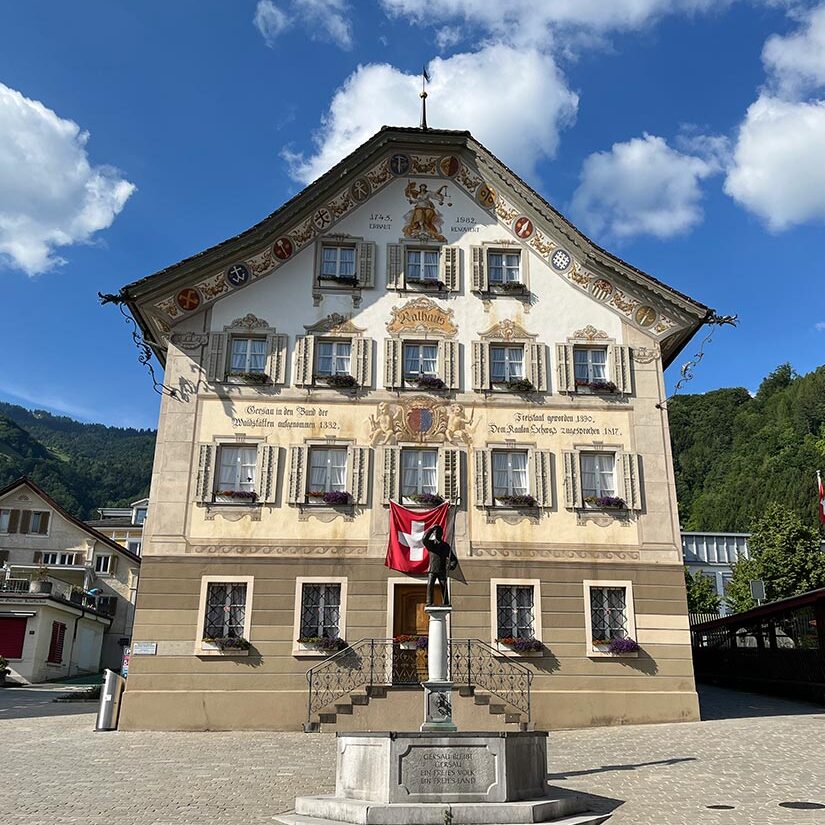
The history of Gersau
the former smallest republic in the world
Gersau - a unique historical centre in Switzerland and Europe
1359
On 31 August 1359, Gersau concluded an alliance with Uri, Schwyz, Unterwalden and Lucerne as a "Zugewandter Ort", like the monastery of Engelberg or the towns of Biel, Mulhouse, Rottweil etc.. Gersau received protection and protection from these four central Swiss states, in return for which the small village faithfully and dutifully fulfilled its alliance obligations to the Confederation.
1390
On 3 June 1390, Gersau bought itself out of the Habsburg pledge and bailiwick authority with a sum of 690 pounds pfennigs. As a result, the rights of the bailiwick, tax rights and jurisdiction were transferred to the people of Gersau. Gersau became a free, unpledgeable municipality and at the same time belonged freely to the Confederation.
1433
On 31 October 1433, Gersau received documentary confirmation of the old freedoms and privileges from Emperor Sigismund. Gersau was placed directly under the protection of the German Emperor as a municipality with direct access to the empire. This actually marked the beginning of the history of the village of Gersau as a free state and republic in the Swiss Confederation and in Europe.
1436
On 28 June 1436, Gersau organised its communal state life with its own court and marriage law, which was only effective and applicable in the Republic of Gersau.
Gersau - early rulership Muri Abbey as ecclesiastical landlord
The first written mention of Gersau can be found in the founder's book of Muri Monastery, where it is recorded as "Gersouwe per totum" - Gersau in its entire area - at the consecration of the monastery church in 1054. Muri Abbey in Freiamt, founded in 1027 and abolished in 1841, was therefore the earliest known ecclesiastical lord of Gersau. The monastery had received the Gersau farm as an endowment from the Counts of Lenzburg. The farmers and fishermen of Gersau had to pay dues to Muri Abbey as farmers and clergymen: fish, cheese, cedar, sheep, wool, furs and nuts.
Collatur rights (parish election) and the church charter passed from Muri Monastery into the hands of Hermann von Buttikon; in 1483, the Ammann and parishioners of Gersau bought the ecclesiastical rights from him and thus the parish church and the parish benefice became the property of the people of Gersau, who also received the right to freely elect the parish.
Lenzburgs and Habsburgs as secular landlords
With the extinction of the Lenzburg (1172) and Kyburg (1264) dynasties, the power of the Habsburgs in the area around Lake Zug and Lake Lucerne grew threateningly. The collapse of royal imperial power and the strengthening and expansion of the Habsburg dynasty represented a significant danger and threat to the free peasants in the Waldstätten. With the election of the Habsburg Count Rudolf IV as German Emperor, this threat became even stronger. The struggle for independence against the Habsburgs initially culminated in the victorious battle of Morgarten (1315) for the Confederation and in the alliance of the three Waldstätten of Uri, Schwyz and Unterwalden in Brunnen on 9 December 1315.
At this time, Gersau was in danger of being pawned off in a variety of ways, as the Habsburgs ruled Lucerne, Zug and Gersau. Gersau, the small, insignificant gem on the shores of Lake Lucerne, could be traded back and forth as a Habsburg pledge until the clever people of Gersau redeemed the pledge themselves in 1390.
Gersau as a republic
Own Landsgemeinde
It took place in the spring in the town hall square. Voters elected the mayor and the other 8 councillors for a two-year term and voted on substantive matters. Voting is based on the principle that "that which is done by the more shall be kept by the less".
Own dish
The Ammann was the chairman of the court and the supreme police authority, and "sworn judges" were also elected. Disobedience, breach of the peace and brawls were generally punished with a fine of 5 pounds. The court also decided on life or death. The gallows was a symbol of this high jurisdiction.
Own court and marriage law
In the court law of 28 June 1436, the free community life was regulated:
- The Landsgemeinde had the greatest power
- From the age of 14, all villagers and parishioners were obliged to attend the Landsgemeinde; non-attendance was penalised with a fine of 5 shillings.
- The Landammann was also the highest judge
- A bridegroom could leave a maximum of half of his estate to his bride as a legacy (and vice versa).
- If a man from Gersau married a woman from abroad, he had to pay a kind of "fine".
Own co-operative
Genossame is the term for a typical Alemannic system of utilisation of the Alps, meadows, pastures and forests, which belonged jointly to the long-established local citizens. The farm or village co-operatives of Gersau formed a kind of agricultural community corporation.
1798
French Revolution. Gersau belongs to the municipality of Schwyz and is assigned to the canton of Schwyz as a district in 1803.
1814-17
Gersau becomes a republic for another four years.
1815
Vienna Congress and Federal Treaty
1817
On 22 July 1817, the Tagsatzung decided to unite the village and countryside of Gersau with the Canton of Schwyz.
1818
From 1 January, Gersau is definitively a municipality and district of the Canton of Schwyz with its own jurisdiction and school sovereignty.
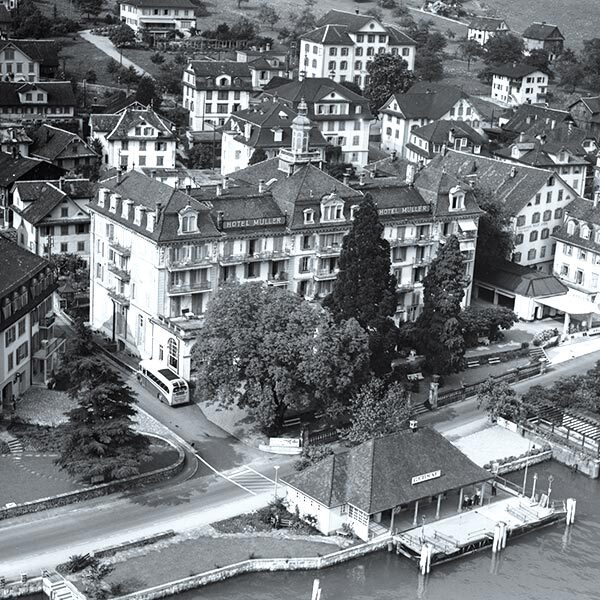
Major hotels in Gersau
Hotel Müller, Kurshaus Rigi Scheideck, Hotel Seehof and Haus zum Hof
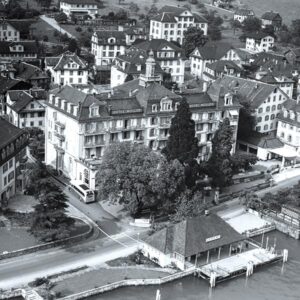
Hotel Müller
↓ Information board
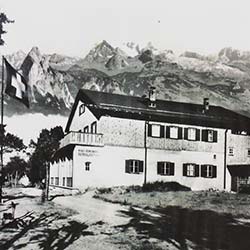
Kurhaus Rigi Scheideck
↓ Information board
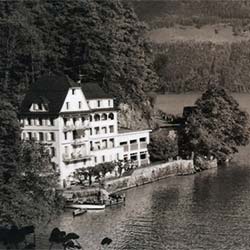
Hotel Seehof
↓ Information board
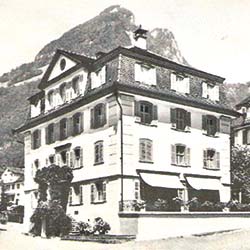
House to the courtyard
↓ Information board
Downloads:
↓ Full text and photos Kurhaus Rigi Scheideck
↓ Full text and photos Hotel Seehof
↓ Film premiere at the Hotel Seehof - SRF Tagesschaubericht
↓ Full text and photos House to the courtyard
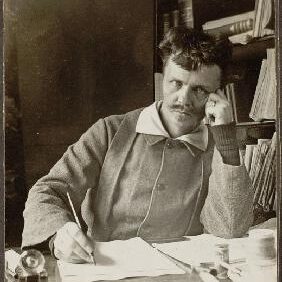
Famous guests visit Gersau
National author August Strindberg and guests at the Hotel Rigi Scheidegg and Hotel Müller
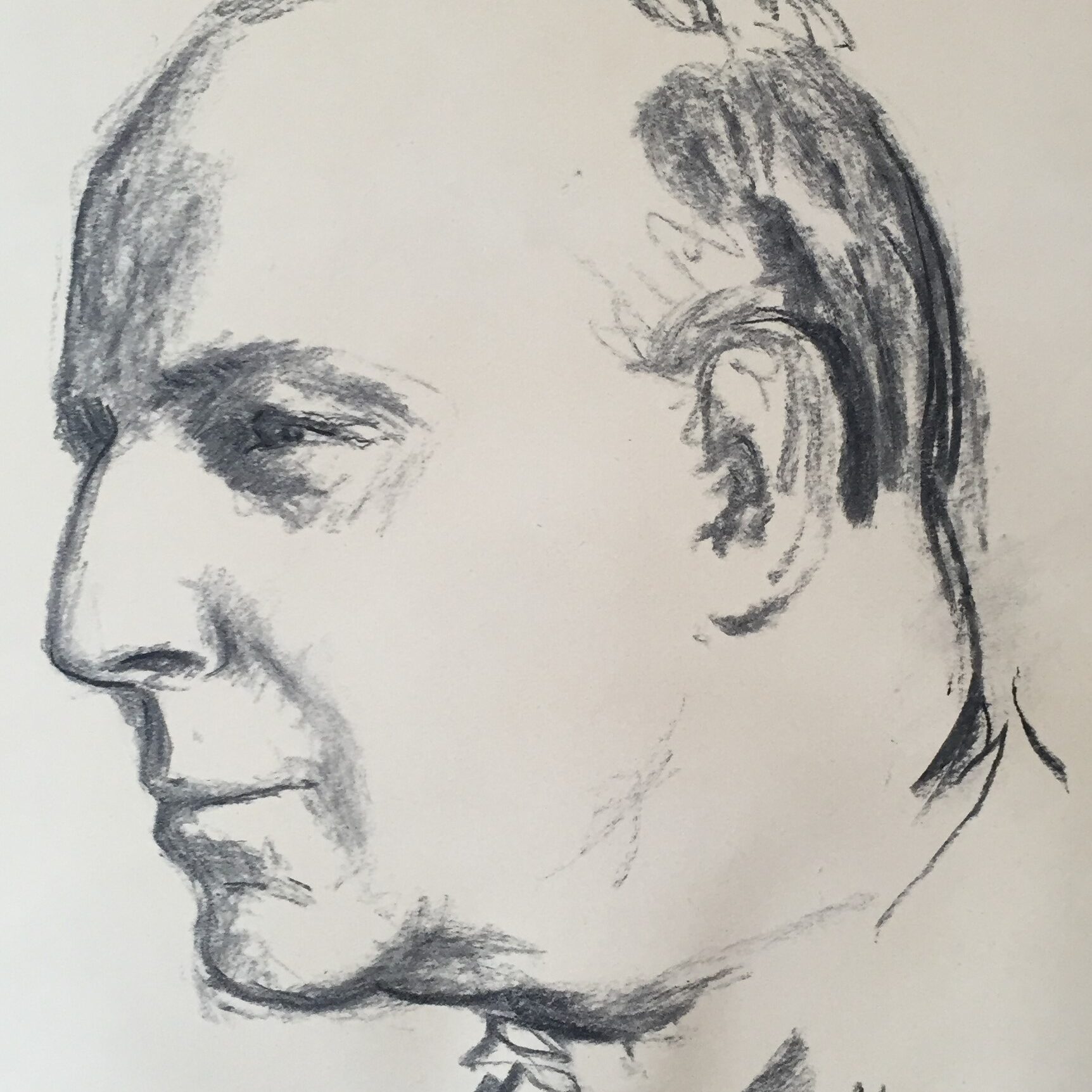
Composer Benno Ammann (1904-1986)
More about his life and work (incl. catalogue of his works)
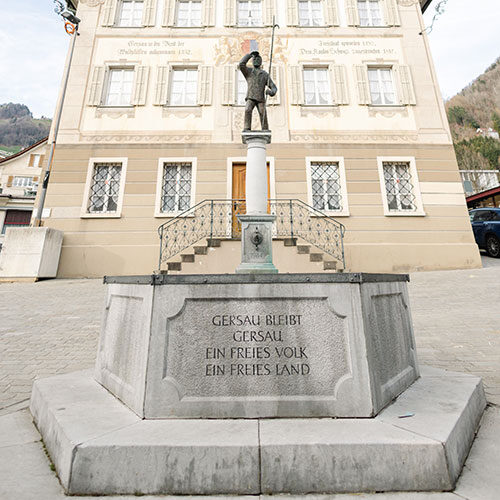
Writer Josef Maria Camenzind (1904-1984)
Two fountains in Gersau / Catalog of works
Interesting books
available at the local museum or at the Tourist Information

Gersau - Unikum in der Schweizer Geschichte
from Albert Müller
Gersau was able to buy its freedom from bailiwick rule in 1390 and remained an independent and free municipality until its annexation to the canton of Schwyz at the beginning of the 19th century. Its remoteness allowed Gersau to exist independently in the slipstream of big politics.
Price: CHF 30.-
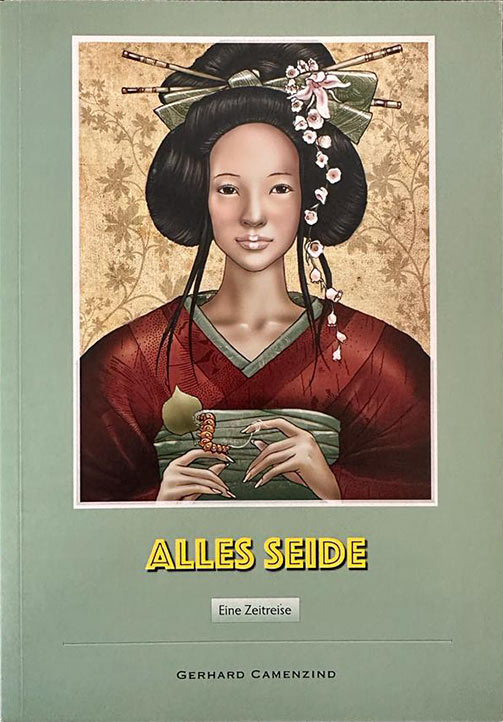
Alles Seide
from Gerhard Camenzind
On the Silk Road - a long journey from Gersau to China and back. On a journey that goes back 5000 years. A fascinating adventure!
Price: CHF 25.-
also available as an e-book at Apple Books (CHF 15.-)
Further information: serinda.ch

